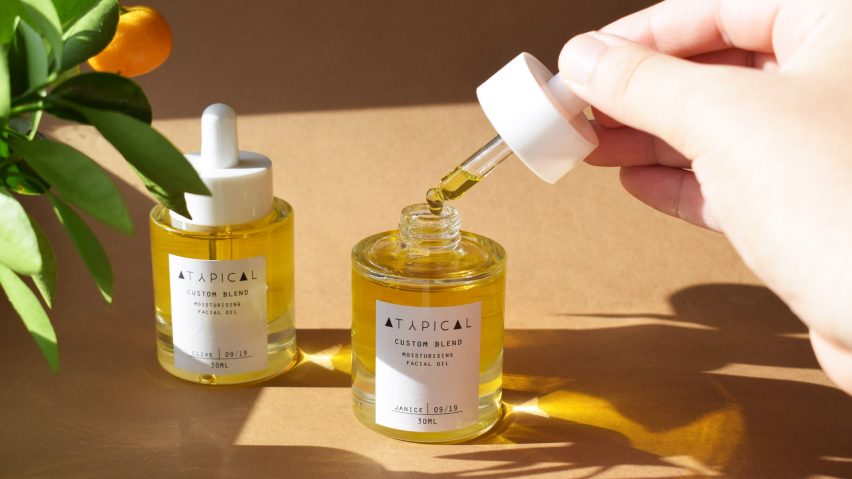
Seven customisable skincare brands harnessing artificial intelligence
Bespoke, smart and made-to-order is the new face of the skincare industry, where product designers are applying artificial intelligence and machine learning. Rima Sabina Aouf spotlights seven brands demonstrating this.
The last two years have seen the rise of several startups that combine data with dermatology. These companies typically share some common principles – new customers will provide detailed information about their needs and lifestyle, and an algorithm will choose the right ingredients and formula to suit.
The machine learning component also plays an important part, as feedback from users constantly provides more information from which the algorithm can hone the product further.
For new startups like Glasgow-based Atypical Cosmetics, the technology has allowed them to reimagine both the product and its business model, with customers receiving a made-to-order product where the ingredients inside are fresh and active.
"Companies typically rely on mass production to create the same product for everyone, but that has led to a lack of diversity in the beauty industry," Atypical founder Marwa Ebrahim told Dezeen.
"Our customisation service and product offering are proof that technology and data can address the niche needs of a diverse population, helping people of all races, colours, genders and lifestyle requirements find suitable data-driven skincare," she added.
Here are seven brands offering AI-driven skincare:
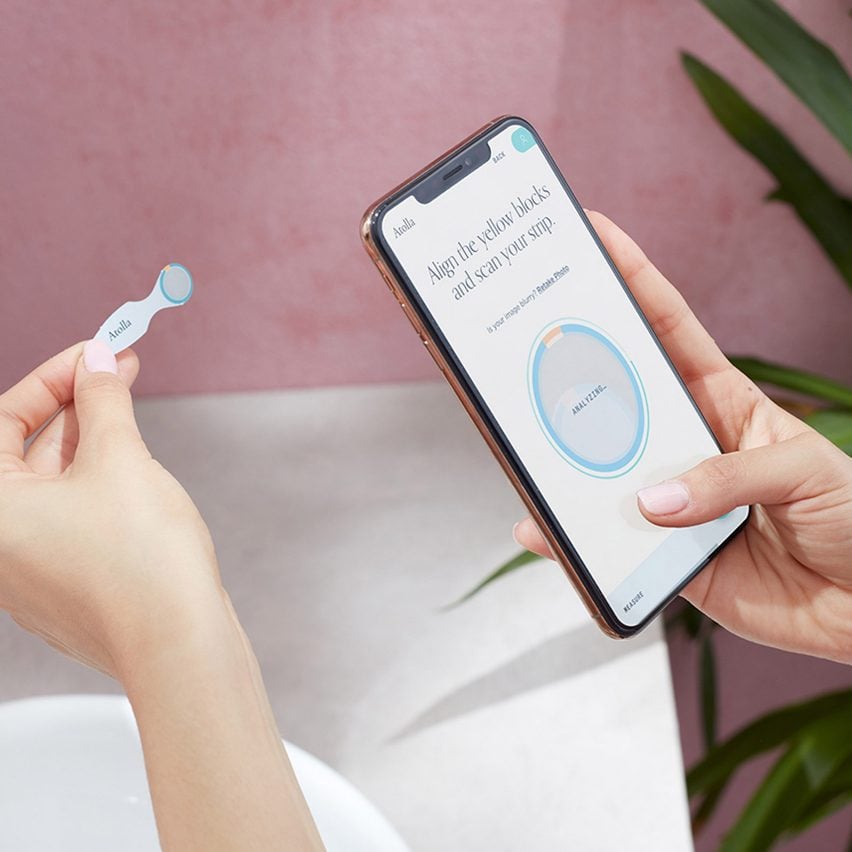
Atolla began when Massachusetts University of Technology (MIT) engineer Meghan Maupin set out to see if she could use her software expertise to fix problem skin.
Launched in 2019, the brand works by giving users testing kits to measure the exact characteristics of their skin – specifically its hydration, oil, pH and absorption.
It then sends them a face serum calibrated precisely to their skin's needs, with the formula updated monthly.
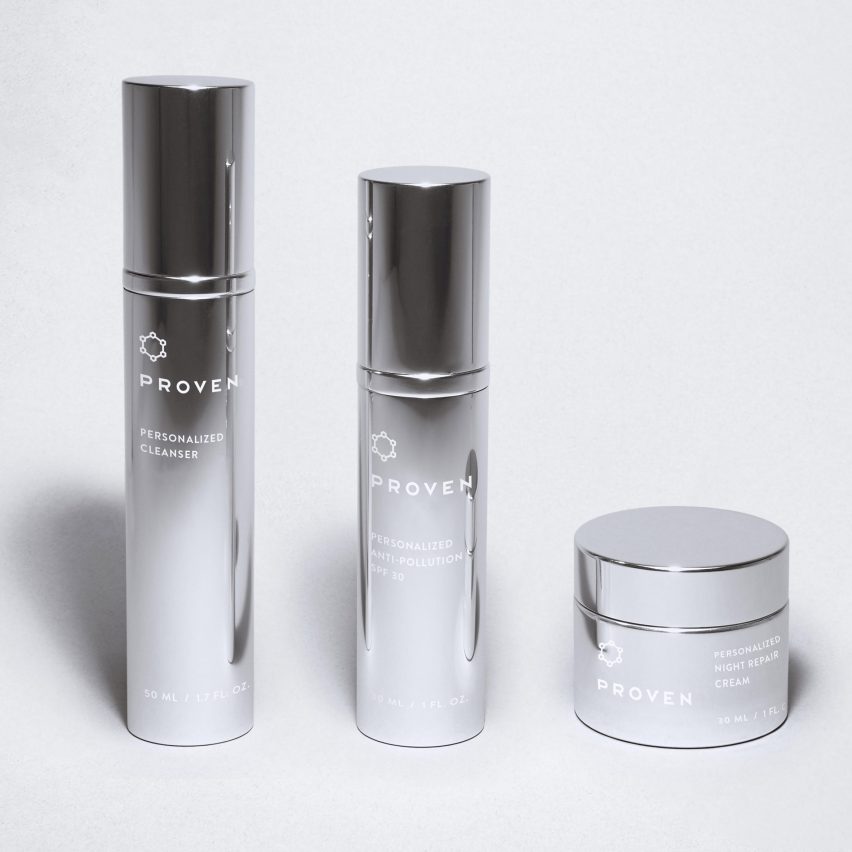
Another brand with roots at MIT is Proven, which claims its database is the biggest in the beauty business.
Titled the Skin Genome Project, it contains more than eight million consumer reviews and 4,000 scientific journal articles pertaining to over 20,000 beauty ingredients.
Factors as specific as the water hardness, humidity level and UV index at the customer's location influence their customised formulations of cleanser, SPF moisturiser and night cream.
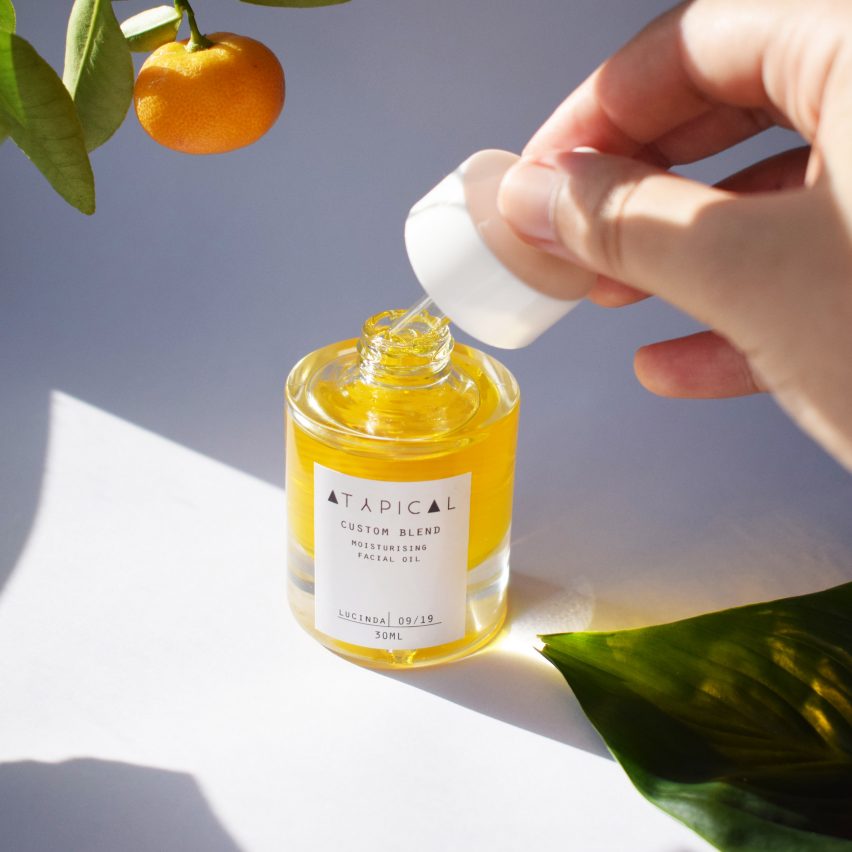
Launched this year by product designer Marwa Ebrahim, Atypical brings AI skincare to the UK market in the form of a face oil and cleanser.
The company uses an online survey to learn a customer's allergies, skin type, lifestyle and skin goals, and an algorithm identifies the best ingredients and formulation to fit them.
The products are then made to order, which, as Atypical points out, means not only that they are tailored to the customer but that the ingredients are at their most fresh and active.
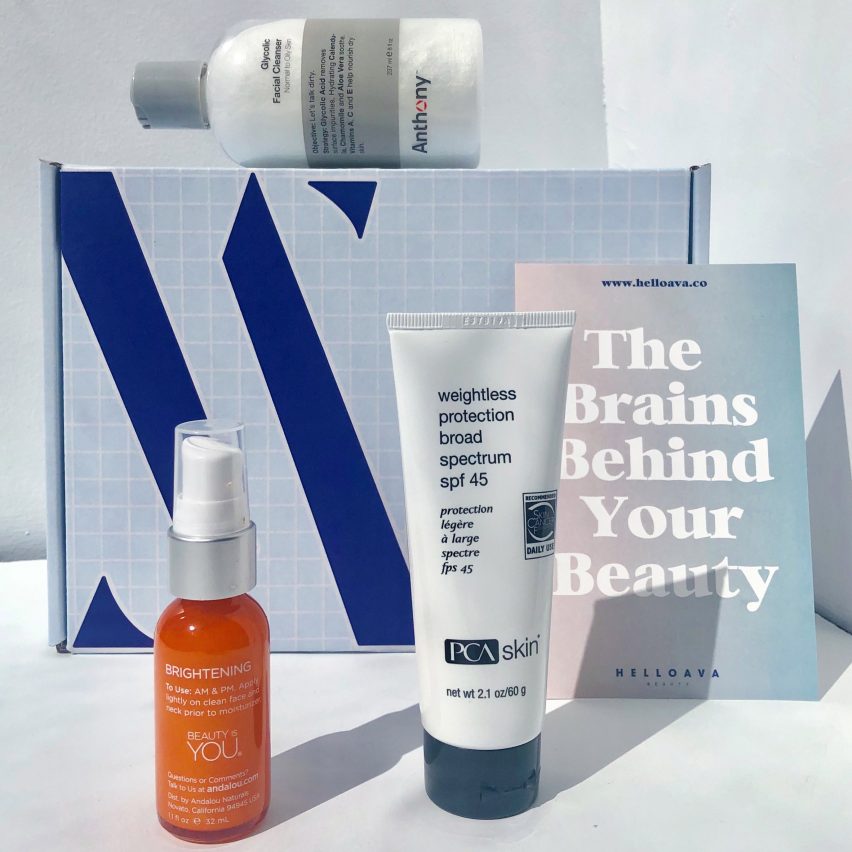
In contrast to the other companies on this list, HelloAva is a curation service rather than a product maker.
Users answer detailed questions about their skin and environment through a chatbot, and the resulting recommendations are so detailed and personalised they come with a score and a data visualisation indicating how good a match each product is.
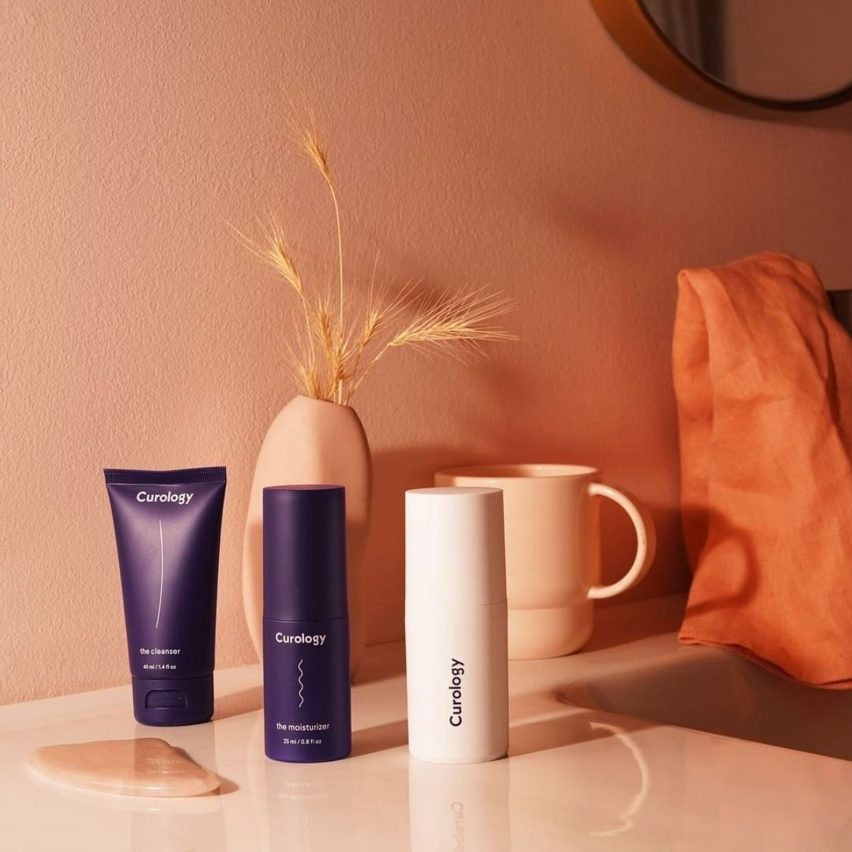
Curology embraces technology in a more distant fashion. It uses a certain level of artificial intelligence in its analysis tool, which incorporates an app, photographs and quiz questions, but calls on human skill for the solution.
Customers get matched to a dermatologist who customises their formula and provides ongoing advice.
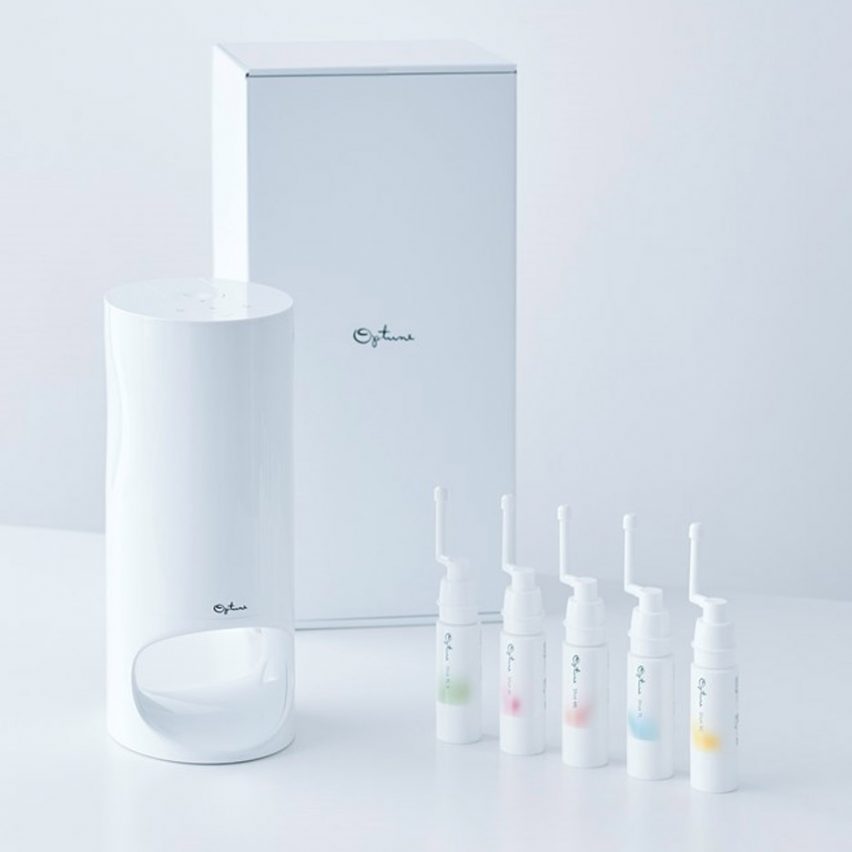
While skincare startups are more likely to orientate their whole business around AI, established brands are also adopting new technologies.
One unique product is Shiseido's Optune, currently only available in Japan. A machine adjusts the user's formula daily, based on factors varying from pollen count to quality of sleep.
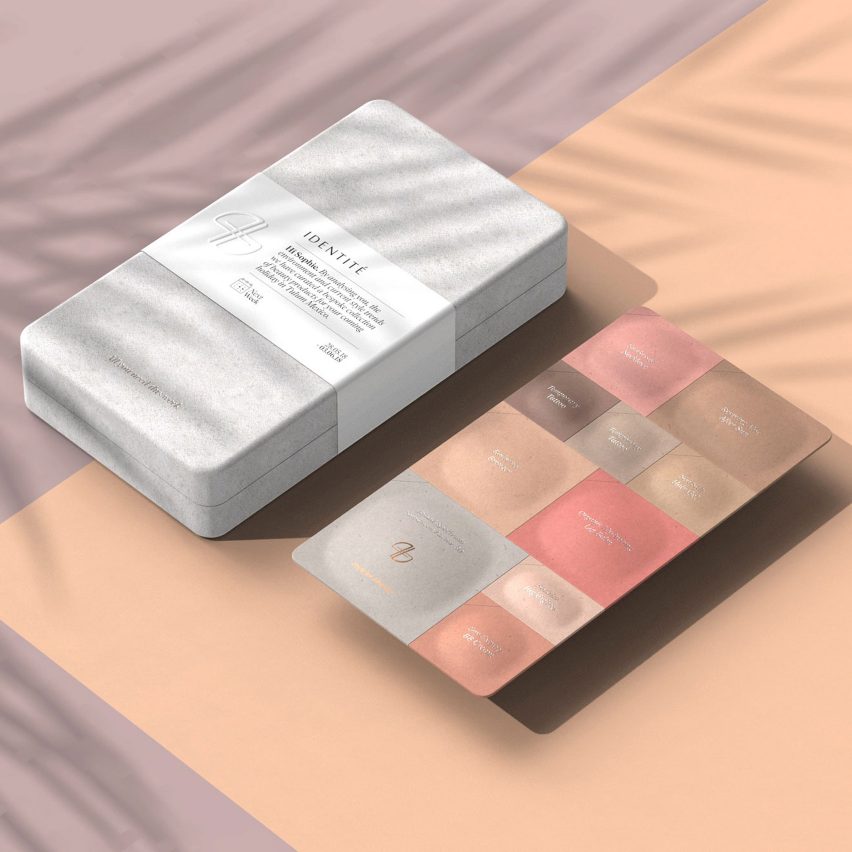
Presaging most of these brands was Identité, a concept by design agency Seymourpowell imagining what the skincare offerings of the future might look like.
The industrial design studio proposed a world where users were sent monthly skincare and makeup packets based on their lifestyle data.
If its predictions are correct, even more personal data such as schedules, diets and travel plans could one day feed into people's skincare formulations.